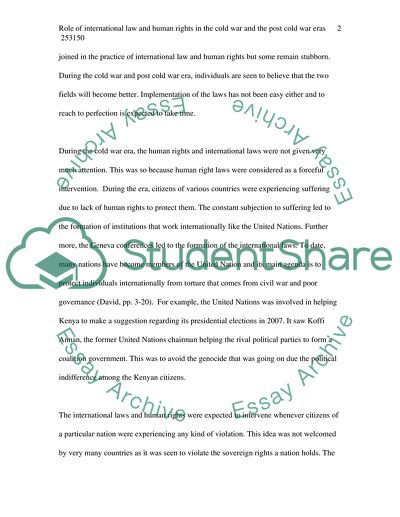Cite this document
(The Role of International Law and Human Rights During the Cold War Essay, n.d.)
The Role of International Law and Human Rights During the Cold War Essay. https://studentshare.org/history/1549726-the-role-of-international-law-and-human-rights-in-the-cold-war-and-the-post-cold-war-eras
The Role of International Law and Human Rights During the Cold War Essay. https://studentshare.org/history/1549726-the-role-of-international-law-and-human-rights-in-the-cold-war-and-the-post-cold-war-eras
(The Role of International Law and Human Rights During the Cold War Essay)
The Role of International Law and Human Rights During the Cold War Essay. https://studentshare.org/history/1549726-the-role-of-international-law-and-human-rights-in-the-cold-war-and-the-post-cold-war-eras.
The Role of International Law and Human Rights During the Cold War Essay. https://studentshare.org/history/1549726-the-role-of-international-law-and-human-rights-in-the-cold-war-and-the-post-cold-war-eras.
“The Role of International Law and Human Rights During the Cold War Essay”. https://studentshare.org/history/1549726-the-role-of-international-law-and-human-rights-in-the-cold-war-and-the-post-cold-war-eras.


